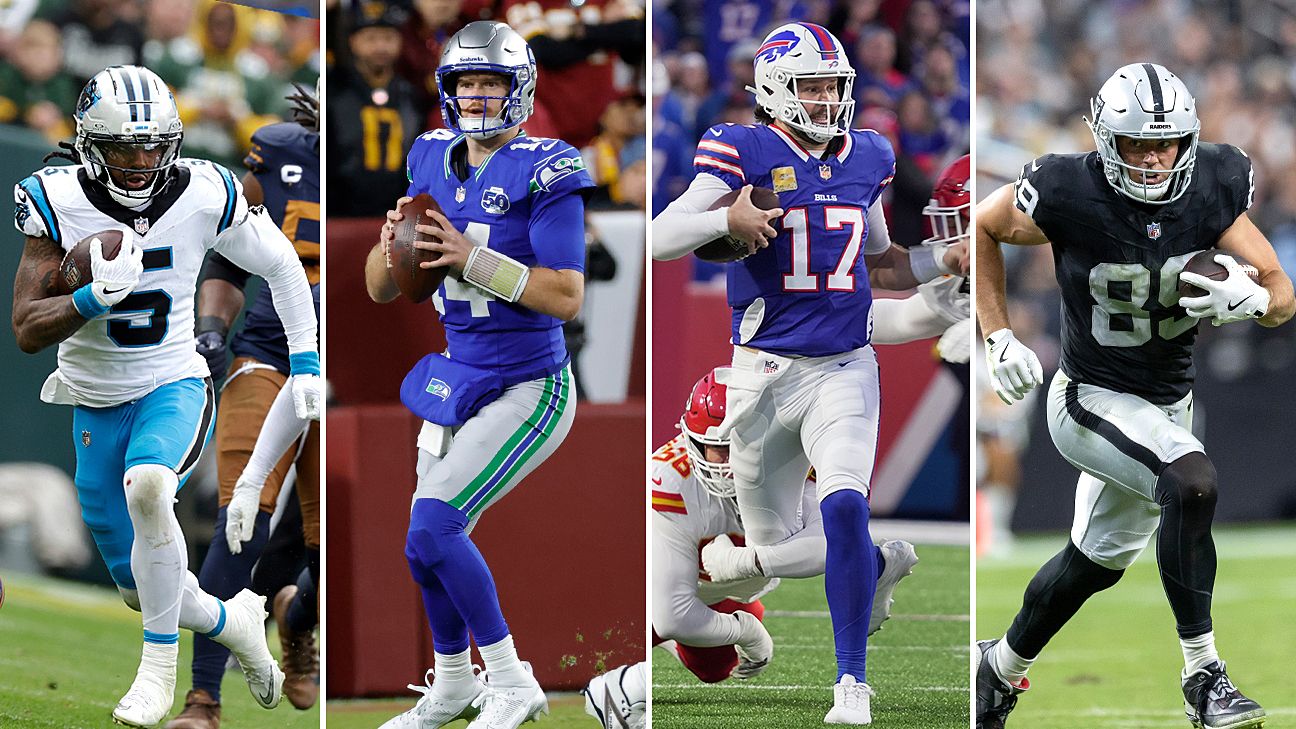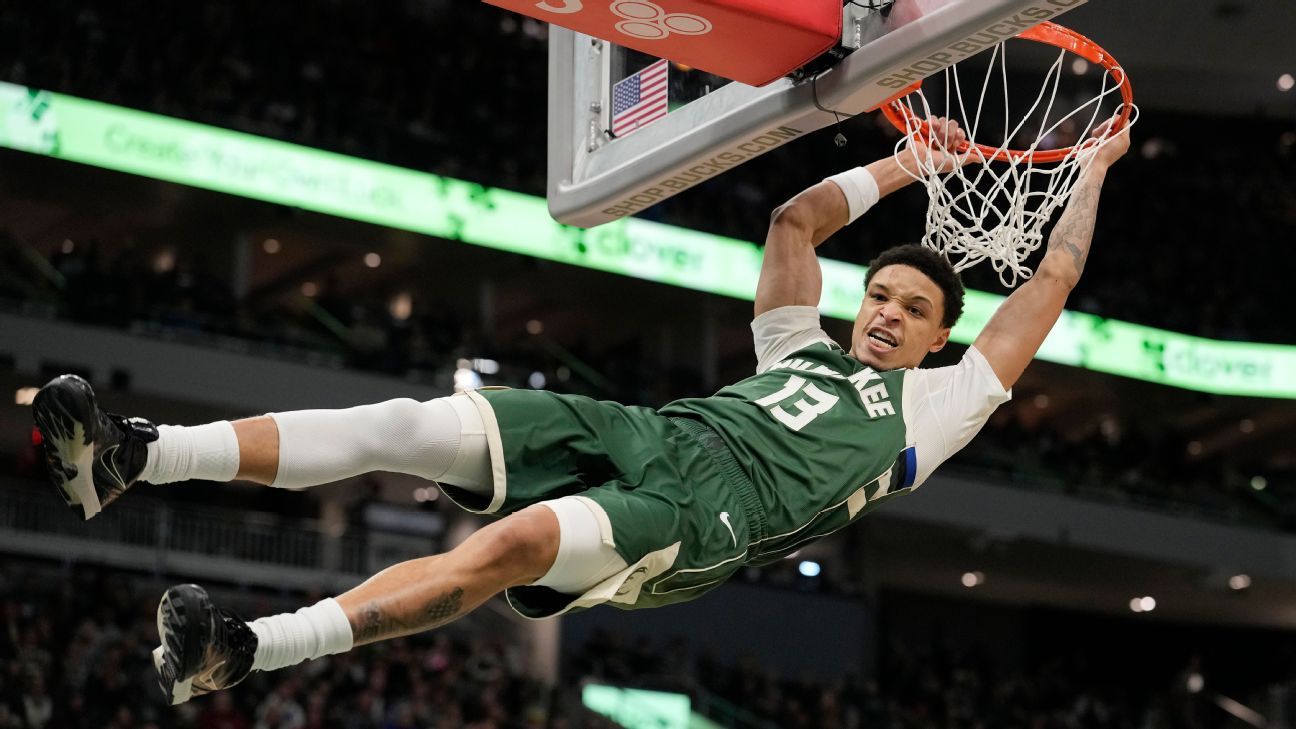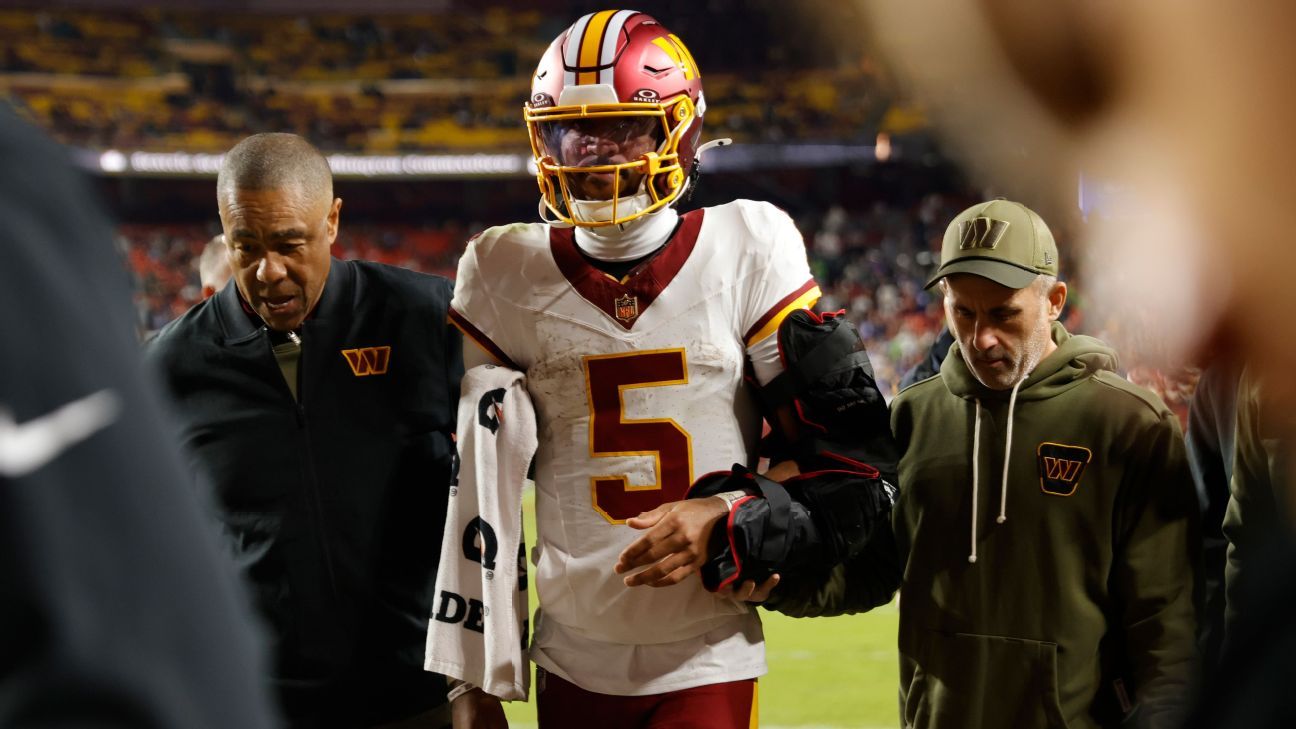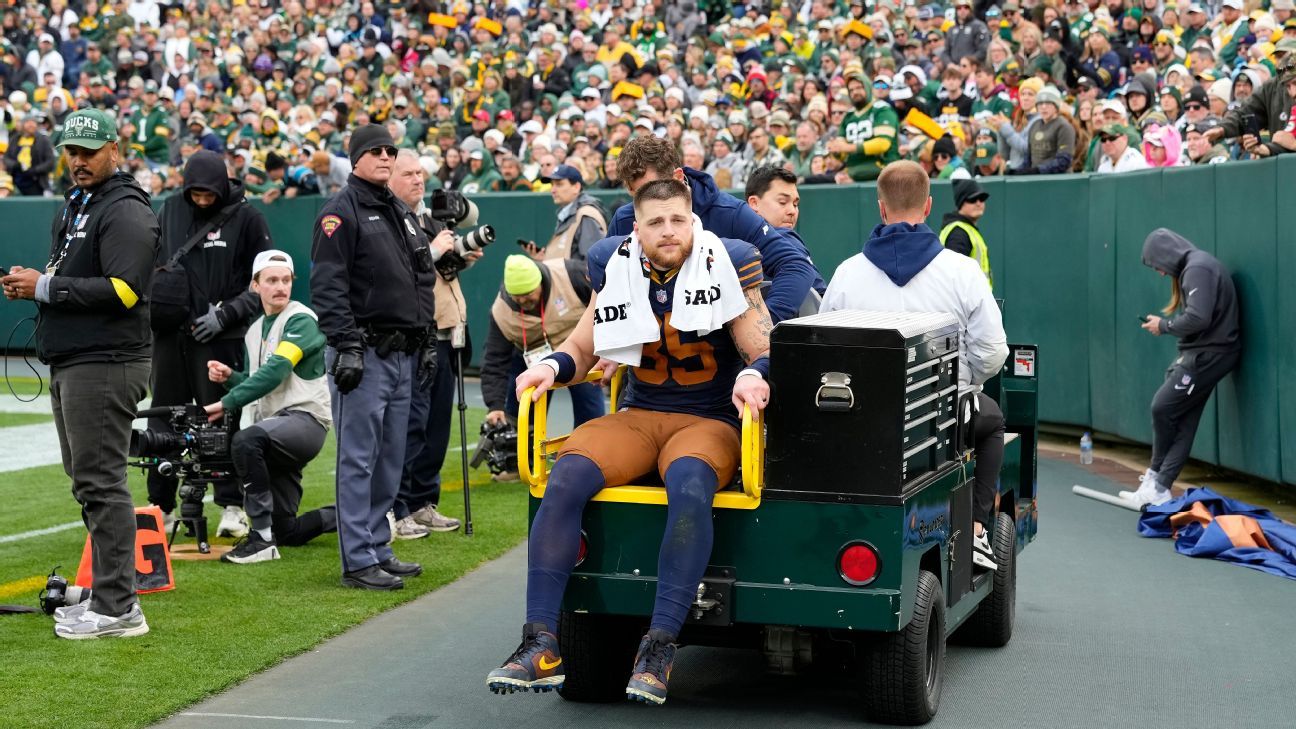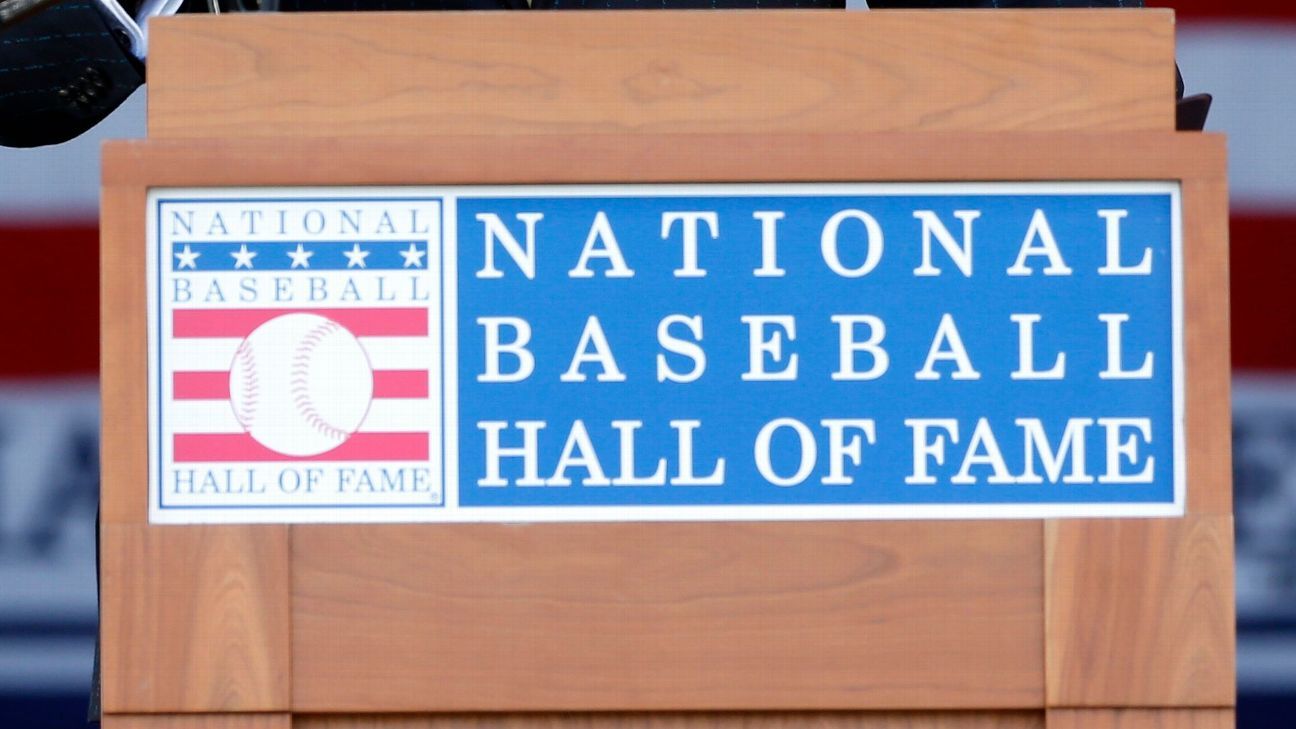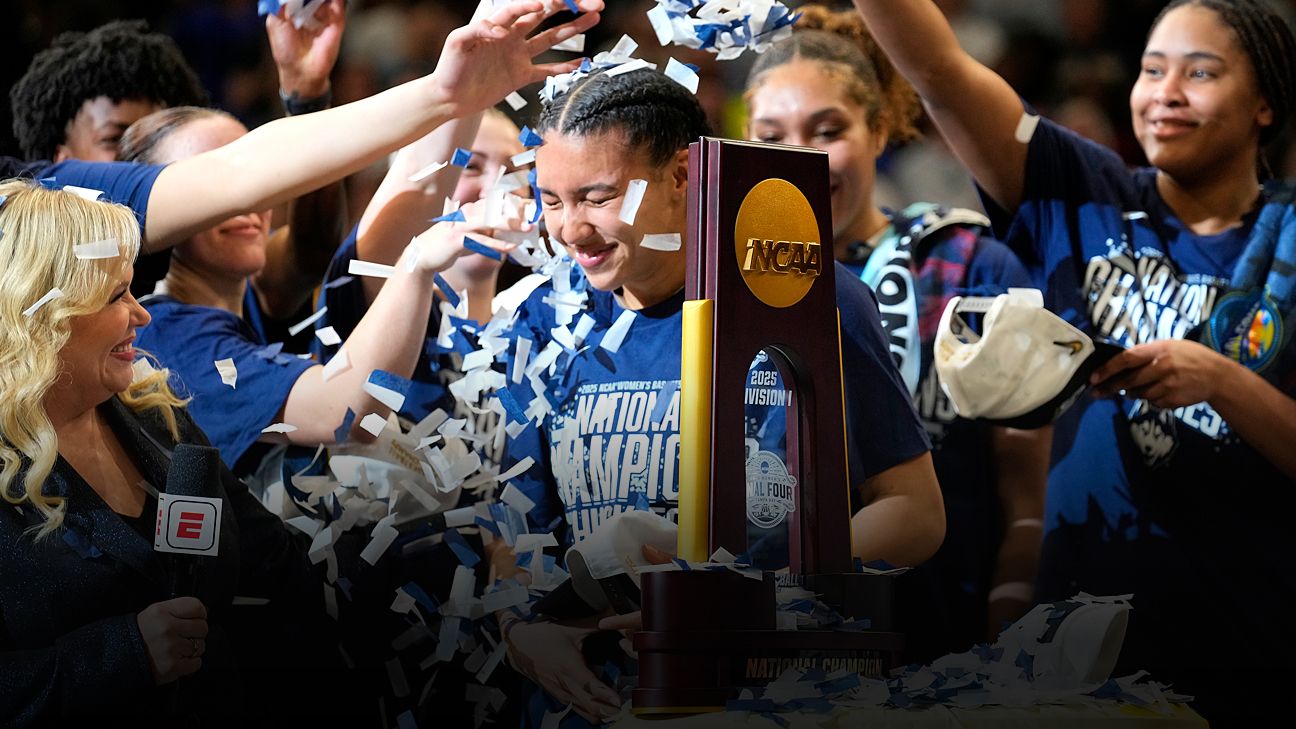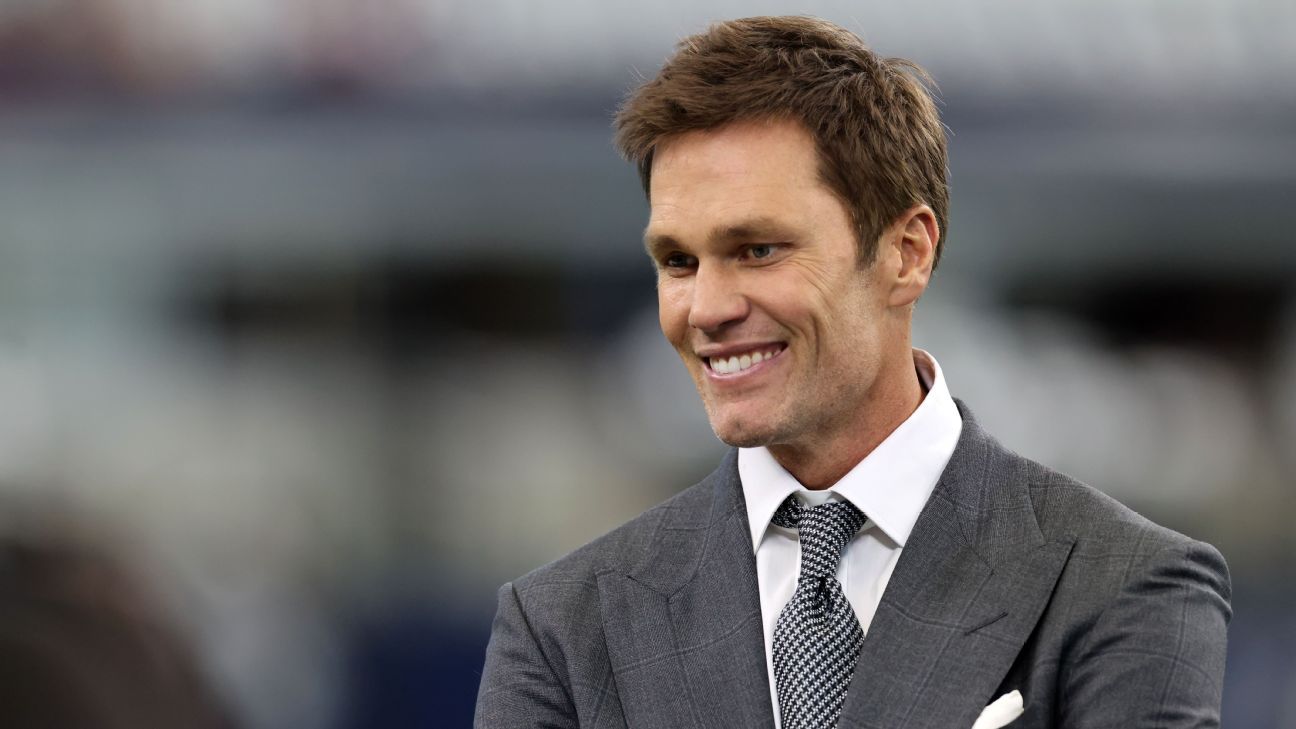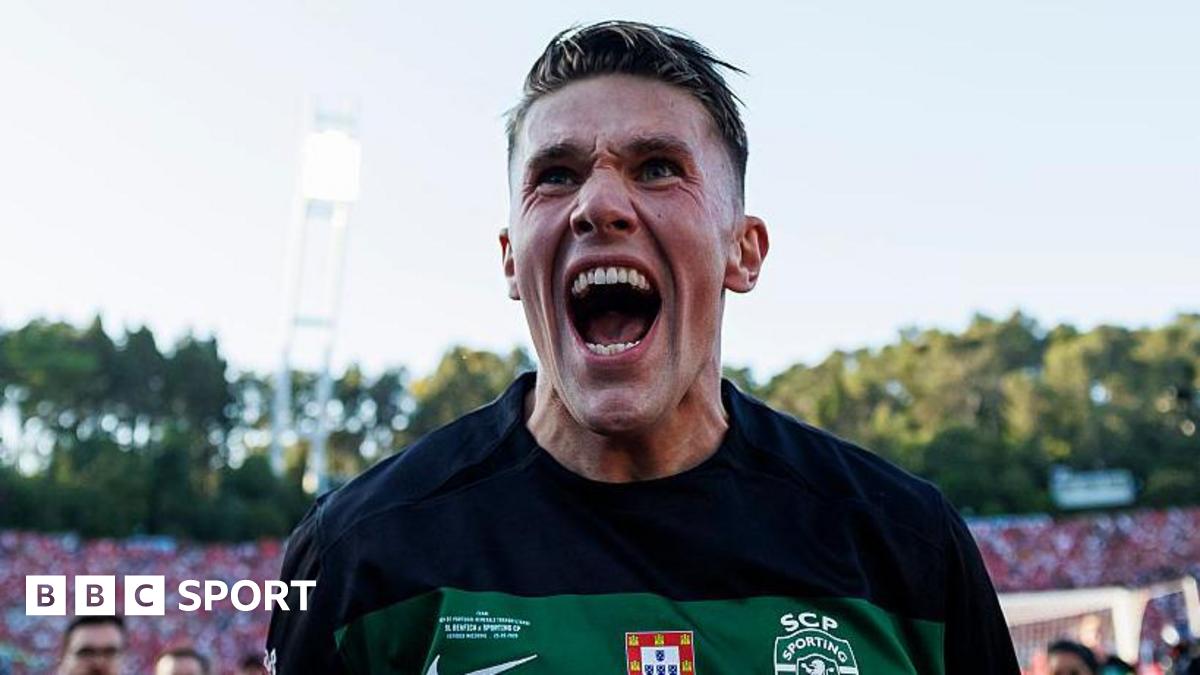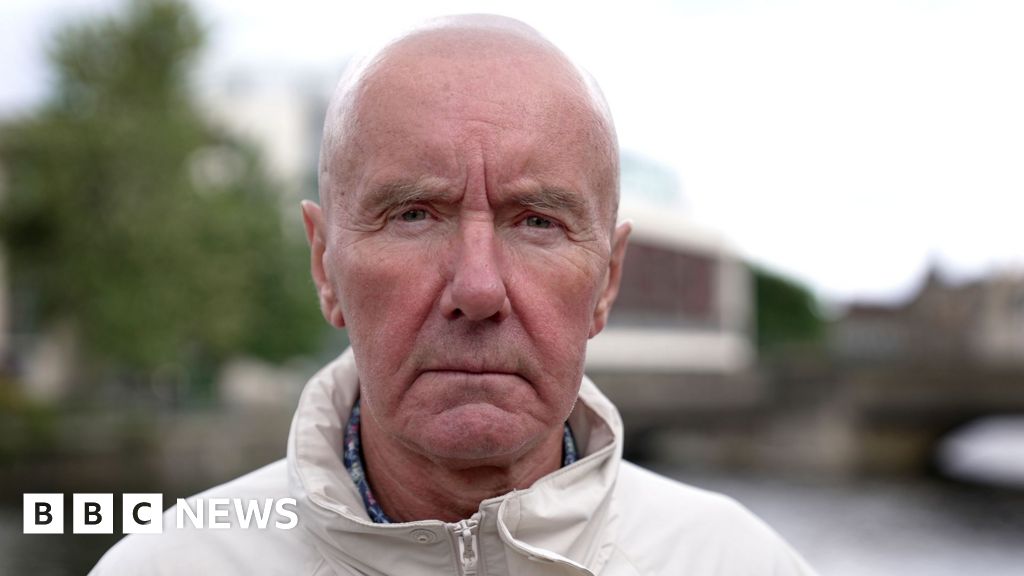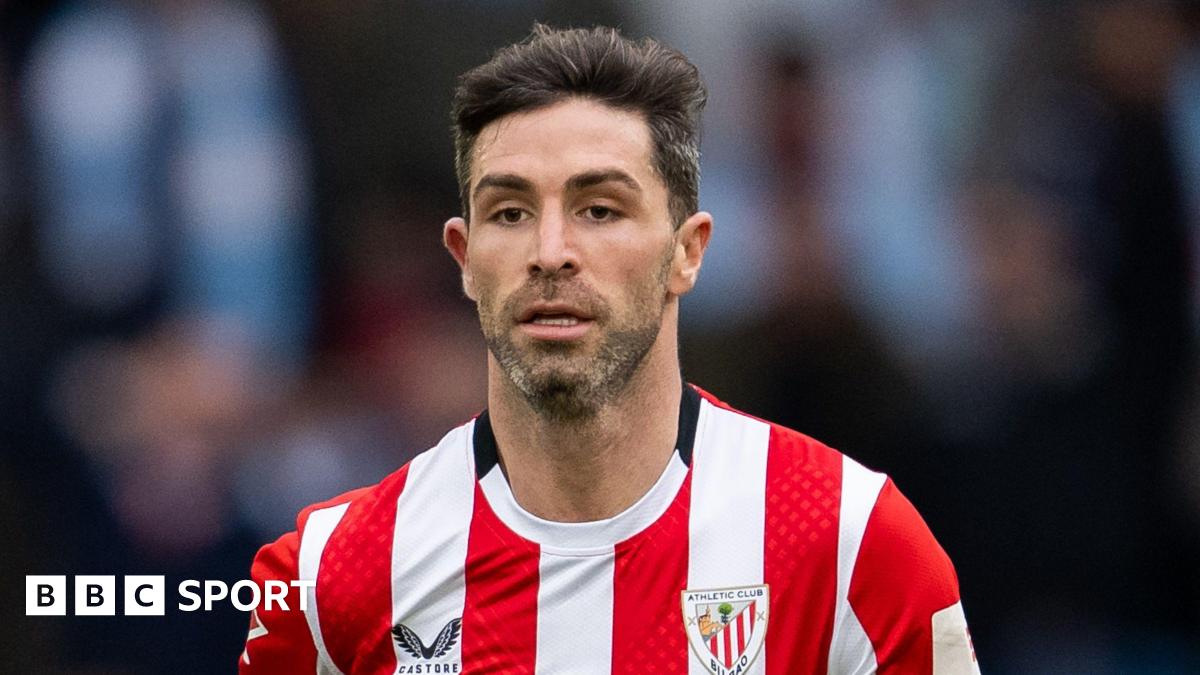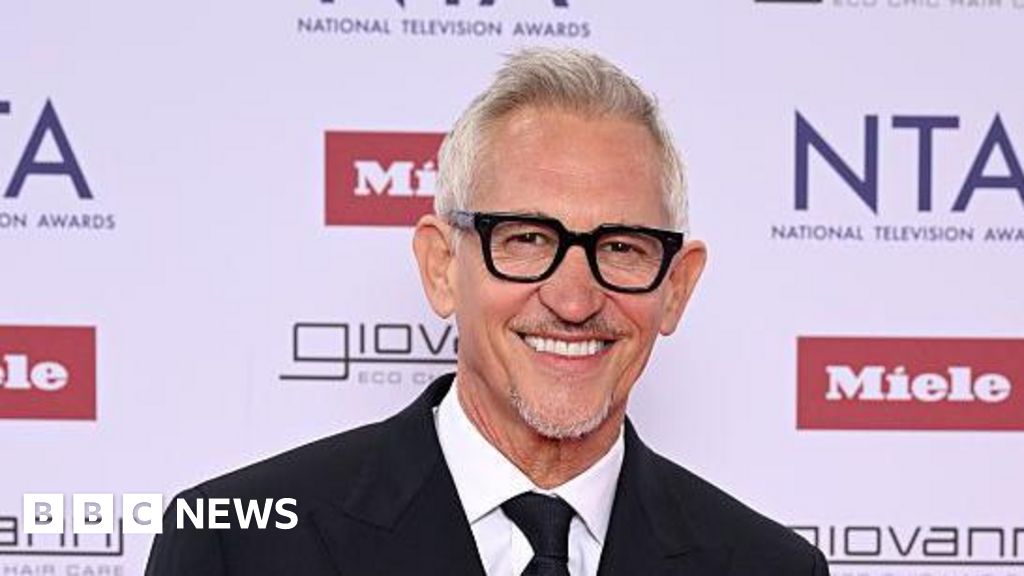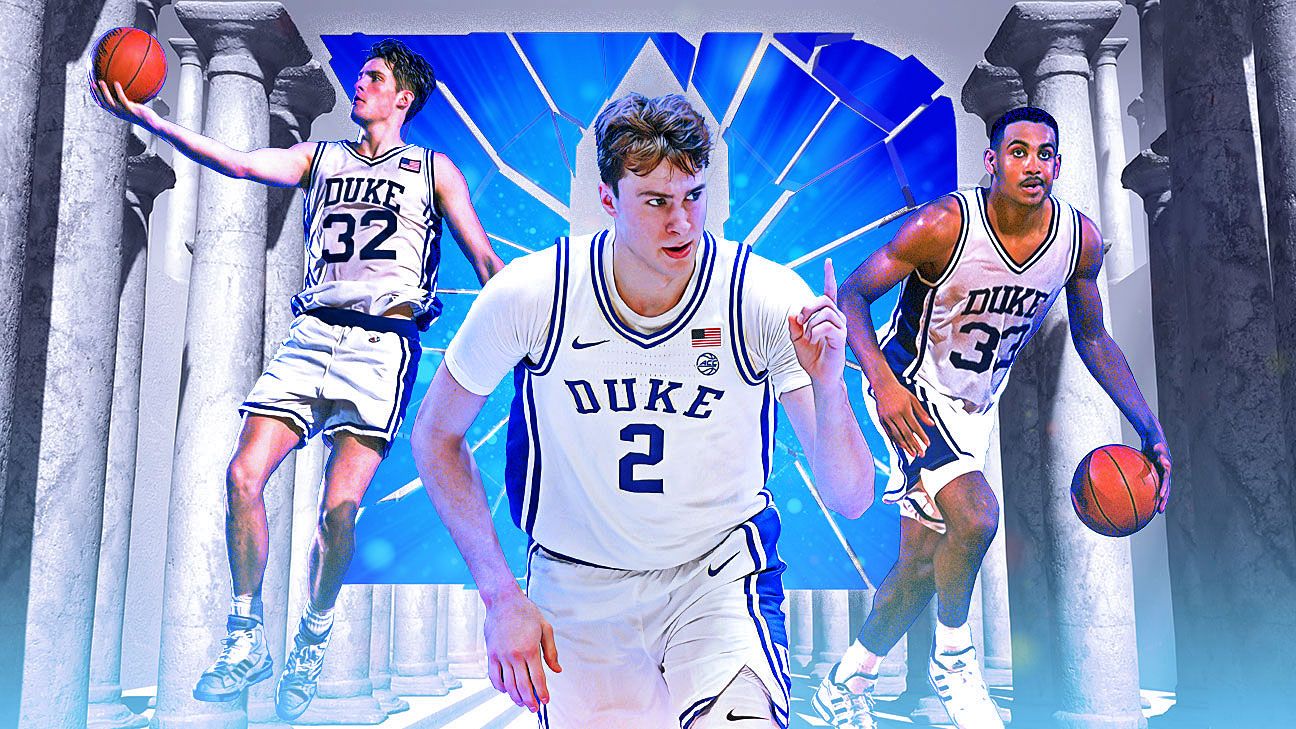
Kevin SeifertJul 20, 2025, 06:00 AM ET
- Kevin Seifert is a staff writer who covers the Minnesota Vikings and the NFL at ESPN. Kevin has covered the NFL for over 20 years, joining ESPN in 2008. He was previously a beat reporter for the Minneapolis Star Tribune and Washington Times. He is a graduate of the University of Virginia.
EAGAN, Minn. -- For one hour per week last fall, Minnesota Vikings coach Kevin O'Connell cleared his calendar. He put aside game-planning, practice prep and film study. He ensured he had no team meetings scheduled, no news conferences and no phone calls that needed to be returned.
Instead, O'Connell turned his focus to the franchise's most important long-term asset: quarterback J.J. McCarthy.
The pair spent that hour meeting one-on-one in O'Connell's office, the centerpiece of an extensive program the Vikings arranged (while attending to the immediate needs of a 14-3 regular season), to ensure that McCarthy's rookie year was not a total loss.
Unable to play because of a torn meniscus in his right knee and prohibited from practicing by NFL rules for players on injured reserve, McCarthy remained engaged and demonstrated enough development to enter 2025 training camp as the Vikings' expected starting quarterback.
"I just wanted to give him a platform with me," O'Connell told ESPN. "Maybe it was football one day. Maybe it was no football. My time is very hard to find during the season, but I just wanted to make sure that we got together.
"The one thing I learned about him in those meetings is he had great questions, and that validated that he was receiving and getting something out of that time. And as I've told him, it doesn't really guarantee you anything, but once you're fighting the fight on a daily basis of growing within the system, he would be able to rely on some of what we did together."
WHY DID THE Vikings bid farewell to 2024 starter Sam Darnold and in the process become the first team in NFL history to allow a quarterback to depart a year after throwing at least 30 touchdown passes?
Why did they accept the exits of Daniel Jones and Nick Mullens, both of whom spent time on the Vikings roster last season, and pass on signing free agent Aaron Rodgers?
Why are the Vikings turning over a playoff-ready team to a 22-year-old who became the first quarterback selected in the first round during the NFL's modern draft era (1967) to miss his entire rookie season because of injury?
Part of the answer relates to the Vikings' long-term philosophy. McCarthy's rookie contract, which carries a salary cap charge of only $4.9 million this season and $5.9 million in 2026, is an important chip to aid roster construction. But the rest of it can be traced to McCarthy's behind-the-scenes work in the five months after his injury (suffered Aug. 10), both in his meetings with O'Connell and through an increasing workload of projects created by quarterbacks coach Josh McCown.
In the highly structured world of the NFL, the Vikings found creative ways to squeeze McCarthy into their day.
The process started when McCarthy was confined to a postsurgery scooter that allowed him to traverse the team's vast practice facility but avoid putting weight on his right leg. Still getting used to operating the scooter, McCarthy put it in reverse and accidentally rammed the doorframe in O'Connell's office. "A little paint chip," McCarthy said, "but nothing else."
O'Connell timed the meetings for what he called the "sweet spot" of game week, after coaches had presented the majority of the offensive game plan, including the third-down package. Usually that fell on Thursday afternoons.
By that time, McCarthy had observed Darnold's assimilation of the game plan during quarterback meetings. Those meetings would end, and while active players went to the locker room to prepare for practice, McCarthy would head to O'Connell's office and go through a mental process the rookie otherwise would have experienced on the field.
"That way," O'Connell said, "when he watched the tape of that practice that night, and later when he was eventually able to start coming out to watch practice, he's seeing an extension of that meeting if we handled it the right way."
McCarthy had access to traditional game film as well as a dedicated camera the Vikings attached to Darnold's helmet, allowing the rookie to see not only where Darnold looked pre-snap and post-snap but also to hear what he was saying in conjunction with the offensive line and even the defensive signals. That film was viewable on the wide screen the Vikings have installed in their draft room and with virtual-reality gear.
In some weeks, O'Connell said, the focus was more on understanding how McCarthy was handling his recovery while missing an entire season of football. Speaking on "The Rich Eisen Show" in January, McCarthy recalled that "a lot of it was just on life, just getting to know each other and growing that chemistry that a quarterback and a head coach, especially a playcaller, needs."
O'Connell said: "This was a guy that had success at every level he's ever played and had something taken away from him for a whole season. And he's still very young, age-wise and NFL-experience wise.
"So you felt like you had to sometimes say, 'Let's not talk protection blitzes or progressions or fundamentals and technique.' It's, 'How are you doing?' And try to just make sure he knows that we're building our own relationship as well. And that I've got his back."
ONE OF THE advantages of a quarterbacks coach such as McCown, who played for 12 teams over 18 NFL seasons, is that he has seen it all. He knows that quarterbacks at the bottom of the depth chart, or on injured reserve, can go through seasons with minimal attention.
"Sometimes," McCown said, "it's just out of sight, out of mind."
The Vikings knew they could not afford such inattention with McCarthy. McCown developed a list of tasks, some of them mundane and some at a higher level, to include McCarthy in everything he could. Some weeks, he would ask McCarthy to write out every third-down play the Vikings had in their weekly game plan, so that the rest of the quarterbacks could refer to it while going through a film session.
"Something like that is a tedious job," McCown said, "but it helps you memorize. And then we'd steal moments when we would quiz him or ask him questions about it, just at random times when we could.
"We're mostly interacting with Sam and questioning Sam on plays, and you don't know what J.J. is taking in and what he's not taking in. But every now and then, it was, 'Hey J.J., what about this?' You try to engage him as if he's playing, and he was on top of it."
When the rest of the quarterbacks headed to the locker room, McCarthy and McCown would remain in the meeting room, going through the mental exercises of what he would have experienced in practice or a walk-through.
"Can you turn the information around?" McCown said. "That's what we were testing him on, and he was always right on it, which was very encouraging."
Another project included research and writing profiles of opposing defensive coordinators, including what coaching tree they came from to help connect their schemes with other teams, as well as scouting reports on defensive players.
"It was making sure that I knew all the ins and outs and all the busy work on the front end," McCarthy said, "when I had the time for it. So [this year] I don't have to spend too much time on things that aren't going to show up in the biggest way and just really making sure I can be efficient with my prepping and my game-plan studying."
On occasion, McCown would ask McCarthy to present information to the group.
"It's not just about listening and learning," McCown said. "But can you process that information and give it back to me? I think that's huge because you're trying to manufacture as many ways as you can to keep his mind around football, processing football, how to attack an opponent, how to think about things.
"And that's what I told him. I was like, 'You got to take this time to prepare like you're the guy and figure out the things that you like and don't like about that preparation process that's going to help you get to where you need to go once you're in that seat someday.'"
McCarthy took some initiative on his own. Defensive tackle Harrison Phillips said McCarthy approached him shortly after McCarthy got hurt to interrogate him about identifying alignments on the defensive front. "He was just asking those great questions," Phillips said.
Each week, McCown asked McCarthy to turn in his notes so he could review what he was -- and wasn't -- picking up.
O'Connell assessed McCarthy's work this way: "It's hard sometimes to know exactly how smart somebody is. What are they really going to be able to retain when they start loading a lot of information? And I think he's demonstrated that he's got pretty high-level intelligence and there's a lot there."
DESPITE THEIR BEST efforts, the Vikings know that McCarthy missed some key development opportunities last season, including seemingly innocuous moments such as running the scout team.
"It's like going to the driving range," McCown said. "It's where you get to practice all your clubs. There's kind of no consequence, so to speak, and you really learn different types of throws that you can make in different windows.
"Sometimes the defensive coaches are asking you to throw it to this player, so I better cut this ball loose early. I better anticipate. So that hones your anticipation skills. And that's the hardest thing that you don't necessarily get to replace, just not being on the field."
Over the course of the fall, McCarthy began writing in what he called a "gratitude journal," a practice he learned at the University of Michigan from life coach Greg Harden, who died in September. McCarthy believed it would help him focus on the benefits of what he could do as a player on injured reserve, rather than fixating on what he could not.
"I haven't had an injury like this that sat me down for so long," McCarthy said, "and I was very grateful for the opportunity that I had to really get a head start on the mental side of the game.
"Getting on the same page with [O'Connell] has been awesome. Last season, seeing how he calls the games and everything like that, as well as the intricate personality traits of the guys on the team -- and him being able to feed those that help strengthen the overall group and help strengthen them individually -- and be there for them when some things aren't going their way."



